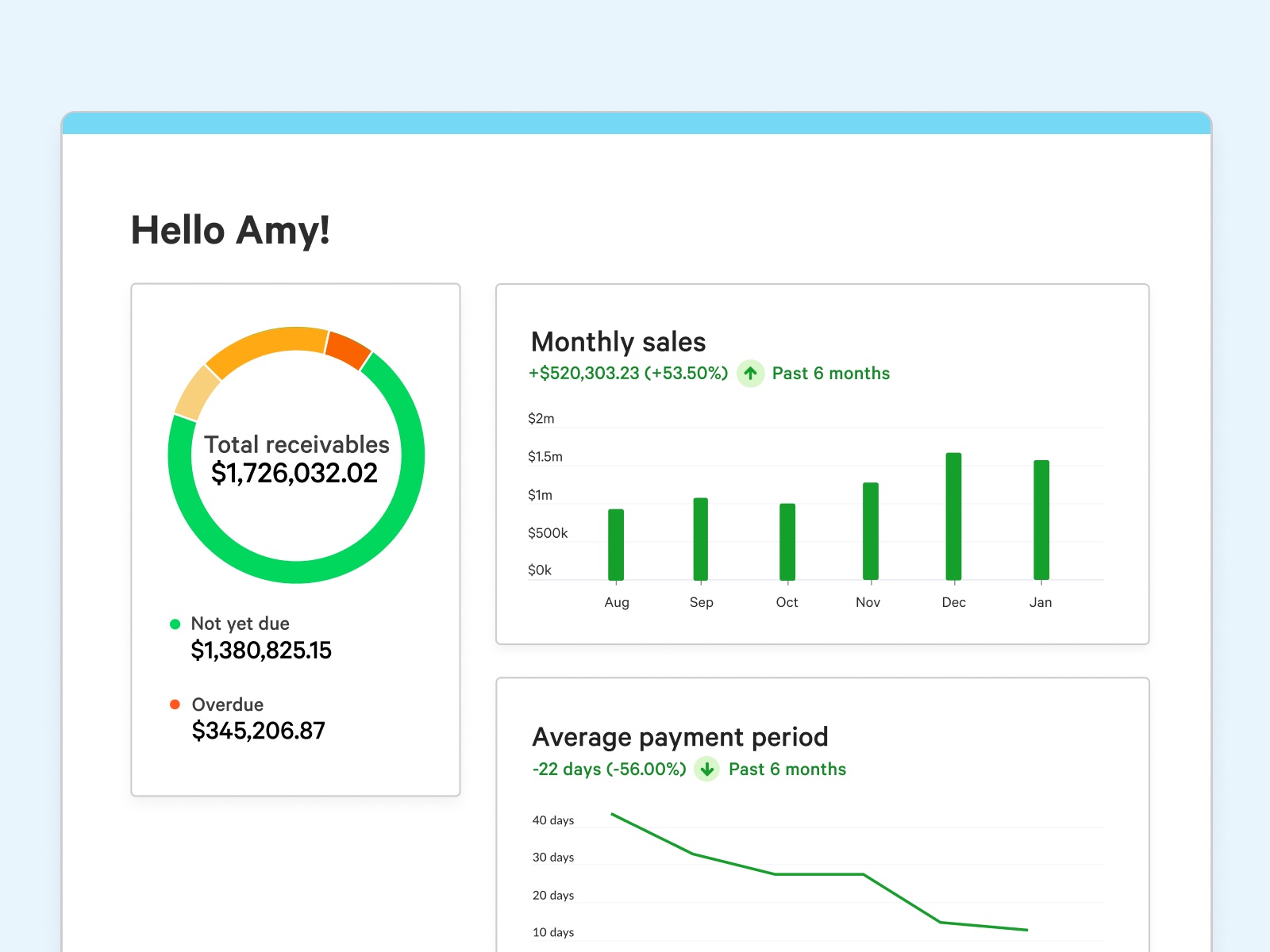While working as the head of treasury at Braintree, Boris de Souza once discovered a $90 million payment that went “missing” for over two weeks because of poor payments infrastructure.
“It was my first week on the job, and I received an email from a client saying ‘I think you shorted us $90 million,’” he recalls. “I looked into it, and they were right. I figured out there was a bug in the system, fixed it and wired the money. But it was incredible to me that it took them 2 ½ weeks to know they were missing $90 million.”
For de Souza, who was also a founding engineer at digital bank Chime and a product manager at Slack, the whole business payments space “has not really evolved” over the past several decades.
“Most business payments are still very much done in paper check and unintelligible ACH payments,” he said.
To set about helping solve that problem, he left Braintree in 2019 and teamed up with fellow former Chime software engineer Zhuo Huang to found Streamlined, an Oakland-based startup that is emerging from stealth today with a total of $4 million in funding. Streamlined raised $1 million in a pre-seed round led by SignalFire in 2020 and recently closed a $3 million seed financing co-led by Greycroft and SignalFire. Unusual Ventures and others put money in the latest round.
A lot of B2B payments tech is built on top of B2C tech, such as Stripe, that was engineered to handle consumer card transactions, according to de Souza. But Streamlined is different, he claims, in that it has “custom built” transaction infrastructure for B2B “from the ground up.”
Many businesses today still pay via paper checks and ACH, mainly for record-keeping and compliance reasons. Meanwhile, payment cycles remain “messy and prone to irregularities,” he says. As such, according to de Souza, a company’s accounting department can waste time manually searching for payments, and then even more time trying to reconcile individual invoices.
Streamlined’s mission is straightforward: to give businesses the ability to accept payments from their business customers “how they want and when they want,” whether it be via paper check, ACH or credit card.
“We are making it possible for us to accept payments, regardless of how the payment comes in,” de Souza told TechCrunch, “and then make it available to the recipient electronically and in the time that they decide.” This, he said, can also help merchants and their customers be compliant and up to date.
The company also touts that its infrastructure is designed to allow for faster merchant payouts and to “dramatically simplify” reconciliation, which he believes is one of the company’s biggest differentiators.
“Where Streamlined really anchors itself against anybody else,” he told TechCrunch, “is that we focus on this problem of reconciliation.”
Initially, the startup is working with fast-growing e-commerce companies, which have grown significantly in number and size since the onset of the COVID-19 pandemic, and currently handles “tens of thousands” of merchants’ payments daily. It’s targeting businesses with $10 million to $100 million in GMV, and “a strong desire to scale wholesale,” de Souza said. But the company’s long-term goal “is to make B2B payments of any size and complexity simple.”
“Unlike retail transactions, B2B commerce is relationship-oriented, and every relationship is different,” de Souza added. “The method by which a buyer prefers to pay, or the timing for that payment, comes down to the way the relationship is defined between buyer and seller, and this is a major reason why B2B payments is so fragmented, so complex and is still so hands-on. We’re approaching this challenge with a deep understanding of both buyers and sellers.”
Streamlined, he says, can sync with Quickbooks and Shopify and customers can create invoices in Streamlined or directly on Shopify.

Image Credits: Streamlined
De Souza declined to share revenue growth metrics, saying only that some of its recent growth “has been strongly tied to the recent changes in e-commerce and a push for more wholesale.” It makes money by charging a processing fee per payment.
The company plans to use its new capital to beef up its 10-person staff, particularly its engineering team. It is open to hiring people who don’t have experience in the payments industry.
“I think it’s important for people without a payments background to consider the space, and it’s exciting, because you’re bringing a new lens to a problem that people have stared at for years,” de Souza said.
SignalFire founding partner and CTO Ilya Kirnos believes that the growth of B2B e-commerce has created a need for better payment and reconciliation tools. Brick-and-mortar retailers who had to shift their business online when COVID hit had plenty of options when setting up an e-commerce storefront, he points out.
“There are tons of modern tools for B2C e-commerce payments, whether it’s Shopify, Stripe, etc.…,” Kirnos told TechCrunch. “…But B2B commerce is very different — more parties are involved in a transaction, you have to match the invoice to the payment, most payments are still made by check or ACH, and not credit card. There is no straightforward way to do this today as a merchant online, and this is the gap Streamlined is addressing.”
Greycroft partner John Elton agrees that the “consumerization of B2B payments is here.”
“It’s not just about the payment — it’s the whole experience a business has dealing with payments,” he said. “The status quo is often a manual, paper-driven process that is disconnected…With Streamlined, businesses don’t have to worry about payments and get paid faster, more accurately, in a process that is seamlessly tied into the existing finance and accounting applications.”
from TechCrunch https://ift.tt/V3XHFAe

Comments
Post a Comment